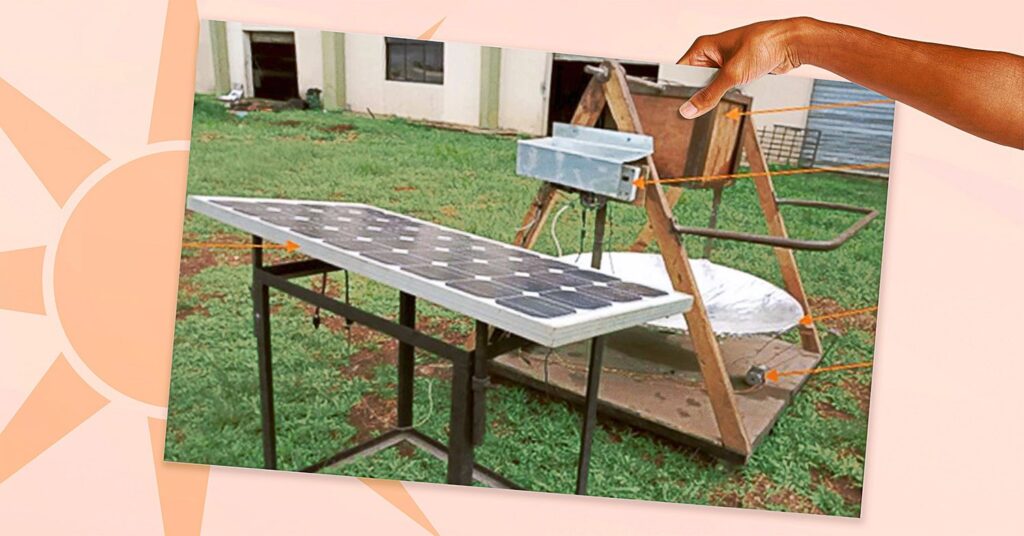Sustainable cooking may soon be possible in developing countries, thanks to two Nigerian engineers who have created a concept design for a solar-powered oven.
The new concept was published in a recent study in Frontiers in Energy Research. Clement A. Komolafe and Clinton E. Okonkwo—senior and assistant lecturers, respectively, at Landmark University, a private college in Omu-Aran, Nigeria—are the masterminds behind the new design.
Although solar ovens are nothing new, the duo’s concept combines the features of two conventional solar cookers for an improved cooking method that can prepare food without the use of pollutive solid fuels like firewood and coal.
“In order to discourage the use of hazardous fuels for cooking,” explained Komolafe, “We thought of combining the solar box and parabolic dish types to produce one novel solar cooking system using locally sourced materials.”
The solar-powered cooker works by trapping heat from the sun via a device that reflects sunlight to concentrate the heat. The authors’ device was able to achieve a heating power of 58.2 watts—enough to boil water and cook rice and plantains. They explained that minor design modifications could be made to improve the cooker’s overall performance.

Solar-powered ovens: The future of sustainable cooking
In their study, the authors noted that the impacts of global warming due to the burning of unsustainable fuels for cooking “necessitates innovative techniques that will improve the standard of living of people.”
“Cooking by the burning of firewood and other non-environmental and non-eco-friendly fuels is still predominant in most developing countries, especially among the people living in rural areas and some urban cities,” Komolafe explains.
According to the World Health Organization (WHO), about 2.6 million people around the world cook over stoves or fires fueled by pollutive solid fuels.
Since they’re a major source of fine-particle air pollution, these cooking measures are not only harmful for the surrounding environment but for the people breathing in the air as well. The WHO reports that nearly four million people suffer premature deaths due to illnesses caused by “household air pollution from inefficient cooking practices using polluting stoves paired with solid fuels and kerosene.”
According to the American Lung Association, wood smoke emissions can cause a host of health issues, including couching, asthma attacks, heart attacks, and lung cancer.
The Nigerian engineers’ solar cooking concept aims to alleviate these environmental and health concerns among rural communities. “The next steps include design modifications to further reduce the rate of heat loss through the wall of the cooking box for better efficiency,” said Komolafe. He added that interested companies and political organizations are encouraged to sponsor the project in order to accelerate the development and production of the cooker.


